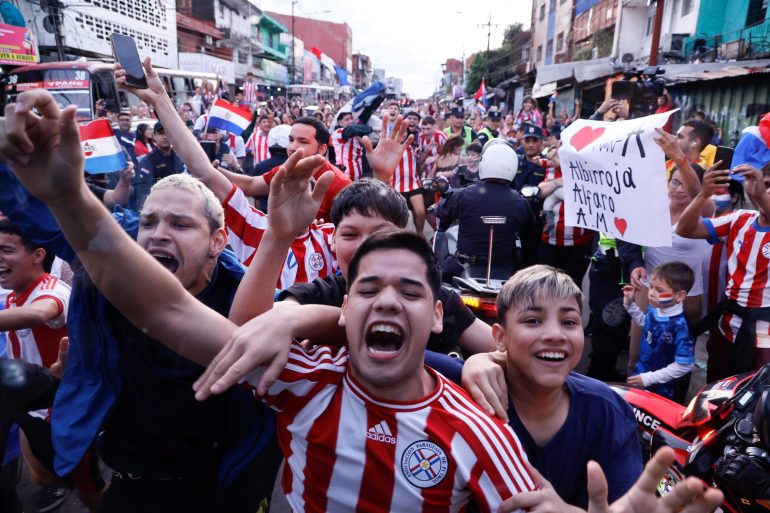Paraguay’s Ministry of Labor, Employment, and Social Security has announced that Friday, 5 September 2025 will be declared a national holiday in case the Paraguayan national football team qualifies for the 2026 World Cup on the night of Thursday 4 September. That night the Albirroja’s match Ecuador that could secure Paraguay’s World Cup return after sixteen years. The match will be played in Asunción’s Estadio Defensores del Chaco at 20:30.
Following this decision, made under Article 4 of Law N° 7544, the Executive Branch will declare Friday 5 September a national holiday. The Ministry of Labour reminds employers of the double-pay requirement for employees working on public holidays.
How will Paraguay qualify?
The Albirroja enters the qualifiers night with their fate largely in their own hands. A positive result against Ecuador in Asunción would be enough to guarantee their return to the World Cup stage after sixteen years. Victory would place Paraguay beyond the reach of their closest rivals, while even a draw would suffice to secure the ticket.
If defeat occurs, the outcome will depend on results elsewhere. Paraguay would still qualify provided Venezuela fails to beat Argentina. There is also a more complex scenario in which Venezuela beat Argentina; in that case, Paraguay’s World Cup place would still be assured so long as Colombia do not manage a win over Bolivia.
In short, three separate routes could confirm Paraguay’s World Cup qualification on Thursday night. Should any of these materialise, Paraguay’s Executive Branch has already prepared to decree Friday, 5 September 2025, as a national holiday under the newly enacted framework.
Double pay for public holidays
According to Article 217 of the Paraguayan Labour Code, public holidays are mandatory rest days for workers. However, in sectors where continuous service is vital – especially healthcare – employers may call upon employees to work.
In such cases, workers must receive double pay for the hours worked, one payment corresponding to the normal wage and another of equal value as compensation for working on a holiday. This must occur under specific conditions, which are not detailed in the original article.
If a business chooses to fully observe the holiday, it must inform its workers that they are not required to work that day. This applies to all employers nationwide. The Ministry of Labour will notify companies via the Employer-Worker Registry System (REOP).
Declaration of the New Holidays Law
On Wednesday, 3 September 2025, the Executive Branch officially promulgated Law No. 7544, which consolidates all regulations relating to national holidays in a single legal framework. This law also introduces a system of movable holidays and grants the Paraguayan President the authority to decree up to three additional national holidays per year for special occasions or to promote domestic tourism.
Among the significant updates included in the new legislation is the designated observance of 20 June, commemorated as the Día de la Jura de la Constitución Nacional de 1992 (Constitution Day). This Constitution is regarded as the country’s first truly democratic charter, adopted in the aftermath of the Stroessner dictatorship. The celebration marks the day when Paraguayans formally embraced a new legal and political order founded on democratic principles, human rights, and the separation of powers.
Certain holidays moveable
The law also establishes that certain holidays – such as Heroes’ Day (1 March), Peace of the Chaco (12 June), Constitution Day (20 June), and the Battle of Boquerón (29 September) – are movable and may be shifted by executive decree to the preceding or following Monday to create long weekends.
Crucially, the new law empowers the President to issue special one-off holidays by decree. The very first potential application of this feature may occur this Friday, 5 September, if Paraguay secures qualification for the 2026 FIFA World Cup in the match on Thursday.
The government explained that the new legislation is not only designed to provide greater clarity regarding holidays, but also to stimulate internal economic activity. By concentrating certain holidays into long weekends and enabling the creation of additional rest days, the law seeks to encourage domestic tourism and boost spending within Paraguay’s hospitality, gastronomy, and transport sectors.


